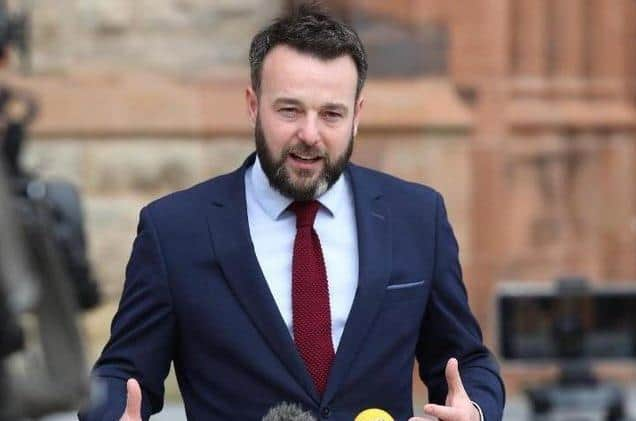Eastwood raises Special Powers Act and 'apartheid' regime in slamming legacy bill
and live on Freeview channel 276
The SDLP leader was speaking in the British House of Commons this afternoon where the British Government's controversial Northern Ireland Troubles (Legacy and Reconciliation) Bill was being fast-tracked through the committee stages.
"It is worth pointing out that we have two days. This is supposed to be committee stage and this is fundamental legislation that I think needs to be scrutinised. Will he recognise one of the key victories of the civil rights movement was getting rid of the Special Powers Act?" he asked Northern Ireland Office Minister Conor Burns.
Advertisement
Hide AdAdvertisement
Hide Ad"The Special Powers Act was introduced in 1922. The architects of apartheid in South Africa looked upon that jealously and stated as such. One of the things that they did was close down access to inquests. But they did not go as far as this bill that you are just about to introduce in 2022. How in God's name can that be right?" asked Mr. Eastwood.


Mr. Burns replied by arguing that the information recovery bodies proposed in the legislation will allow better access to answers for victims than the mechanisms that exist today.
"It is the Government's view that this body will have more information, more powers than the existing processes and will be able to conduct these enquiries, these reviews, faster than the current mechanisms are delivering.
"I completely accept that there is a difference of opinion from the front bench, the Government side, and members opposite. That's is our contention that is contested but that is how we intend to proceed and what the bill outlines that we intend to do."
Advertisement
Hide AdAdvertisement
Hide AdIn the same debate Mr. Eastwood accused the British Government of reneging on commitments made in the Stormont House Agreement after Mr. Burns referred to legacy commitments made by the Irish Government.
"He mentioned that the Irish Government made commitments. I absolutely agree that they need to deliver upon those. Those commitments, though, were in the context of the Stormont House Agreement, commitments of course, which the British Government made as well.
"You are now moving miles and miles and miles away from the Stormont House Agreement, stopping any opportunity for people to get access for truth and justice despite what you might say," said the Foyle MP.
Mr. Burns said London believes the 'government of the Irish Republic's commitment was a standalone commitment to bring forward their own legislation to have a means of resolving some of these unresolved cases to the benefit of all, to aid the process of information recovery, reconciliation across the island of Ireland and across the totality of these islands'.
Advertisement
Hide AdAdvertisement
Hide AdHe added: "We could rehearse, although I don't think it would be particularly helpful because we both know the arguments that would be deployed, why we have come to the conclusion that the process around Stormont House and the bodies that are in place are not, in our judgement, going to deliver what we are seeking which is to help those who want it find out what happened to their loved ones.
"But we have been open in saying that this is a movement beyond Stormont House and it's a movement beyond because the Government believes that this will be a better way of getting that information and trying to aid the process of reconciliation in Northern Ireland."
